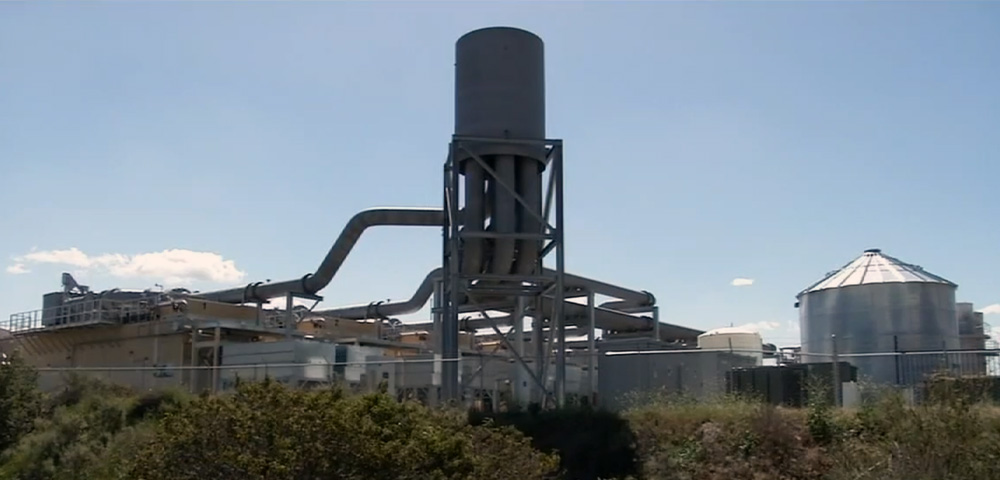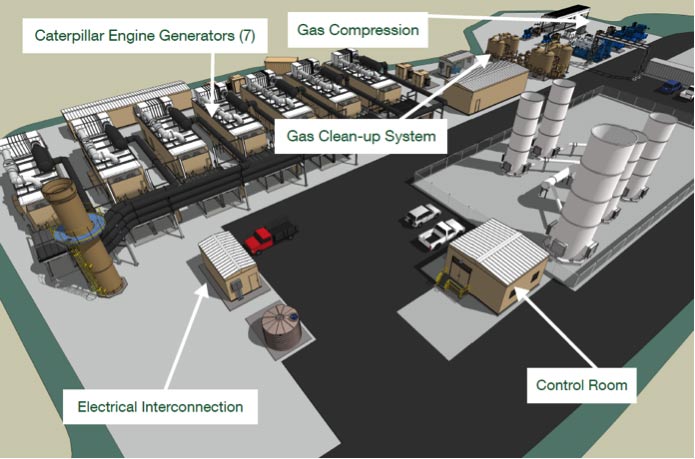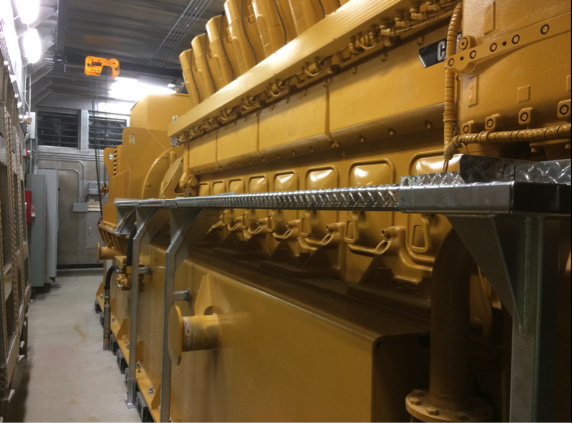Mannheim, June 27, 2016
Since March 2016, the Bowerman landfill has supplied thousands of local households and enterprises in Anaheim, east of Irvine in Orange County in Southern California, with eco-friendly energy. The 160,000 MWh/year that are produced from methane gas are sufficient for supplying about 26,000 households in the community. The Bowerman power project is Orange County’s third landfill gas-to-power plant to go online, after Olinda, Brea, and Prima Deshecha, San Juan Capistrano. Together, the three plants generate more than 380,000 MWh of power a year – enough to supply more than 56,000 homes in Southern California.

The electrical energy is gained from the escaping landfill gas from the natural decomposition of millions of tons of organic waste deposited at the Bowerman landfill. The gas consists of methane and small amounts of organic non-methane compounds. The gas is processed to remove organosilicon compounds. By collecting methane (CH4) from landfills, whose escape to the atmosphere would promote the greenhouse effect, these power plants contribute to the conservation of the environment. After all, the greenhouse potential of methane is up to 25 times higher than that of carbon dioxide. Thanks to the systematic use of the methane gas, the Bowerman plant is able to avoid about 53,000 t of carbon emissions a year.
The state-of-the-art plant – which cost $60 million – is one of the largest power plants on the West Coast. The power plant project was financed by Caterpillar Financial Services Corporation (Cat Financial). The project development was handled by Bowerman Power, a subsidiary of Montauk Energy, headquartered in Pennsylvania.

The Bowerman power project fulfills all high environmental and governmental air quality requirements by combining three tried-and-tested technologies. For this purpose, Caterpillar makes use of gensets especially designed for landfill operations. As an increasingly important energy generation solution in the power generation mix, these decentralized power plants collect, process, and treat available landfill gas for the generation of electrical energy. Seven Cat CG260-16 gas gensets with gas clean-up and emission reduction technologies are used in the Bowerman power project.

The supplier Anaheim Public Utilities delivers the produced power amounting to 160,000 MWh/year to residences, schools, and enterprises in the district. The average annual license payment to Orange County is projected at $1,620,000, which corresponds to a sum of about $31 million over the agreed term of 20 years.
Fact Sheet
Project Partners
| County of Orange | Landfill Owner and Operator, Source of Landfill Gas Fuel |
| Montauk Energy | Power Project Developer, Owner and Operator |
| Anaheim Public Utilities | Power Buyer and Distributor |
| Caterpillar | Provider of Construction Financing and Reciprocating Engines |
Project Facts
| Project Owner | Bowerman Power, a subsidiary of Montauk Energy |
| Project Location | Frank R. Bowerman Landfill, east of the City of lrvine |
| Plant Size | 1113,000 sq. Ft. on 2.6 acres |
| Construction Start | January 2015 |
| Construction Cost | $60 million |
| Operation Date | March 2016 |
| Power Generation | Seven state-of-the-art Caterpillar reciprocating engines |
| Plant Capacity | 22 megawatts |
| Contract Capacity | 19.6 megawatts |
| Annual Production | 160,000 megawatt-hours of electricity |
| Electricity to Serve | 26,000 homes (equivalent to the City of Tustin) |
| Power Purchase and Distribution | Anaheim Public Utilities through a 20-year power purchase agreement |
For further information on the Bowerman power project, see:
http://abc7.com/science/oc-landfill-creates-energy-from-methane-gas/1269342/
Photos: Caterpillar Inc., Kcomm
